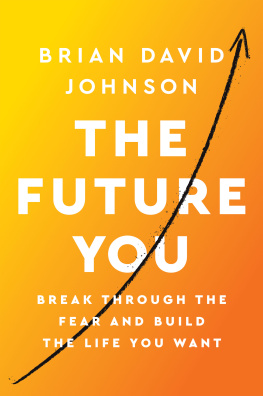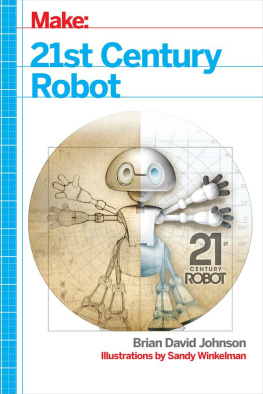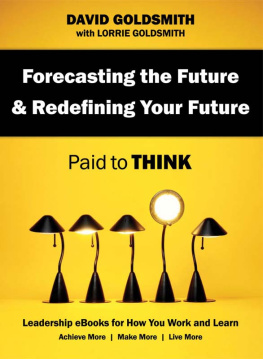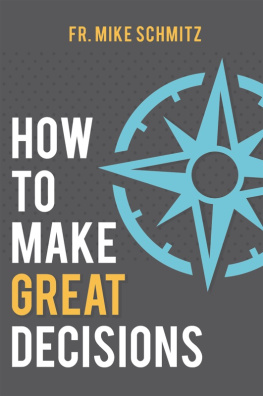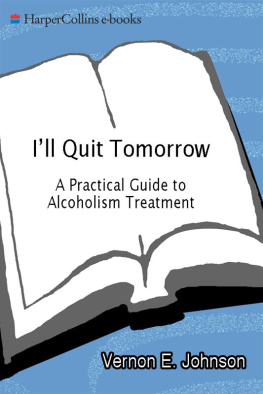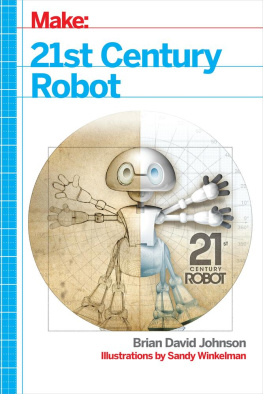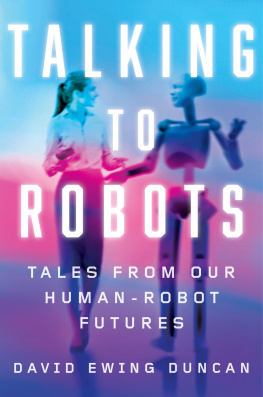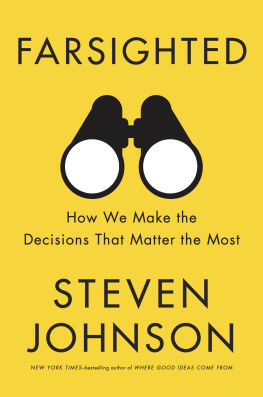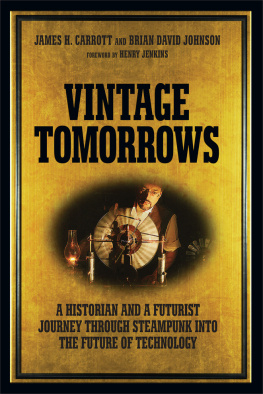Contents
Guide
For those who choose the future over fear
Contents
A Tale of Two Phone Calls
No one wakes up one morning and thinks: I need to see a futurist. I get called in when dark clouds are forming on the horizon and a company or organization needs help figuring out its next moves.
If youre reading this book, I hope your situation isnt too dire, but you obviously need some advice about your future, maybe as it relates to your job or financial security, or to anxieties around technology, politics, or the economy. Maybe youre worried about how your relationships will play out with your kids or parents. Or there are the big future fears: pandemic, war, sickness, and, of course the mother of them all, death.
I can help. I cant tell you your future, but I can show you how Ive helped many people realize theirs, including the specific steps they needed to take to move toward the future they wantedor at least feel a little better about where theyre headed, a little more in control.
Taking that first step is the hardest part. But trust me when I say, you can do it. Im not saying it will be easy. But I am saying you can do it.
Being worried about the future is just thatworry. Think about how much time and energy you spend worrying about stuff that hasnt happened, and maybe never even will. What if you instead put all that energy toward the creation of a positive and lasting future?
I get it. Even after working as a futurist for a long, long time, I still get worried sometimes, and thats a big reason why I decided to write this book. To show you what I mean, let me tell you about two of the harder phone conversations Ive had recently.
Call 1: The CEO in Crisis
It was late. I was reading. My phone buzzed. I recognized the name immediately.
Hello? I said.
This isnt going to work, BDJ, Carol replied quickly, using the nickname most people eventually get to with me. No hello, no pleasantries, just panic and a tightness in her voice. This isnt the future I want.
Whats wrong? Whats going on? I asked. I kept my voice calm even though I was feeling a tad nervous myself. Carol didnt sound good, and it worried me.
I dont think I can turn down this client. The opportunity just came in today, and I know we talked about a shift in strategy and I know we said that might mean saying no at times, but... She paused and took a breath. I know we dont want to do work like this anymore and the firm needs to change direction, but its nearly three million dollars.
What did the others on the leadership team say? I asked.
I havent told them yet, she answered. Im sitting here trying to think about what to do. This is the future of the firm, the future of my business.
Carol was the CEO of a midsize talent agency in Los Angeles. Ten months ago she and the rest of the leadership team had brought me in to work with them. They were concerned that their firm wasnt prepared for the future, and it was my job to work with them on charting a new path.
We did it. It was a good plan with specific steps, one that would embrace a new generation of talent and influencers, drawn from the emerging social media side of entertainment. That meant changing the types of clients they took on in a pretty sizable way. I wont bore you with the details, but as part of the risk assessment, we had talked about the possibility of a big talent, a traditional TV star, wanting to join the agency and how that would be hard to turn down.
That time had come, and Carol was scared. I could hear it in her voice. She was worried she wasnt making the right decisions, that she was going to mess up her future, as well as the future of the firm and all the people who worked there.
You sound frustrated, I said.
Thats because I am! she snapped. There are peoples lives and jobs here on the line. Not to mention my own family. Im sorry. I didnt mean to be short with you. What should I do, BDJ? Youre the futurist.
I hesitated, suddenly unsure myself. Was she doing the right thing? Who turns down three million dollars? Is that crazy?
Are you there? she asked.
I had been silent for too long. It had become uncomfortable, but I didnt know what to say. I was scared too. Here I was, the futurist, and I was suddenly unsure about the future.
The reason I had paused is because something in Carols voice reminded me of a call Id taken a few weeks earlier.
Call 2: The College Grad at a Crossroads
I had been walking back from an appointment when Brunos name popped up on my buzzing phone.
Hey there, I said.
Im a coward, Bruno said, his voice low with dread.
Whats wrong? I asked. What happened?
Nothing happened, he answered. Thats just it. I couldnt do it.
Bruno was a friend of a friend. He was twenty-two, just out of college. He had a decent enough job but not one with a lot of satisfaction or growth opportunity. He liked where he lived but didnt love it. And he was lonely. A recent breakup with a boyfriend had not gone well. Bruno was having a tough time.
I locked up in the interview, Bruno explained. I started worrying that my current manager was going to find out and that Id get fired. If I get fired, I wont have health insurance, and what if I get sick? What would I do then?
I paused. It wasnt Brunos words that made me hesitate. It was the sound of his voice. He was panicked and in distress. The whole point of our conversations over the last few weeks had been to empower him, to give him the confidence needed to go after the future he wanted.
Had I done him harm? Would my advice put him out of a job? It would be crushing if he lost his health insurance. I knew he had some serious underlying health conditions that if left untreated would mean even more trouble.
Are you still there? Did I lose you? Bruno asked.
No, Im still here... I said, my voice trailing off, the same way it would with Carol a few weeks later.
* * *
The calls with Bruno and Carol made me question myself. What business did I have giving people advice? I dont care if its about three million dollars or deciding on a career path. What made me think that I could hand out advice?
And then I told myself what I tell myself every time anxiety creeps in: You can help because youve done it before. For a quarter century now Ive been helping large international corporations, Silicon Valley tech companies, nonprofits, universities, and even governments and militaries figure out their way forward.
Now I want to help you.
Thinking about the future creates a kind of life paralysis. You freeze up. You cant make moves even in your head. You feel like you arent in control. You get frustrated. You give up.
How can you change your future? There is a process and I can teach it to you, the same way I did with Carol and Bruno. Despite the intense moment of panic (theirs and mine), they did make it to their future. In both cases they ended up taking a break, regrouping, and making sure they felt comfortable with their new direction. Then they started back on the path, what I like to call the path to the Future You.
Finding Future You
Whenever I first meet with a person who is struggling over their future, I talk about the three versions of self that make up every one of us: Past You, Present You, and Future You.
Past You is your experience and memoriesyour joys and regrets, your victories and defeats, the sum total of your many lessons learned.
Future You is the person you will become. Its who you want to be and also who you dont want to be (much more on this to come).
Then theres Present You.
For most of us, Present You is Past You. We spend our lives in the past. As George Orwell put it, Who controls the past controls the future: who controls the present controls the past. We dont just remember the past, we are ruled by it, regretting bad decisions and opportunities missed, or looking for ways to forget the bad times. Of course the past isnt all bad (at least I hope not!). There are positive memories and moments of joy.

